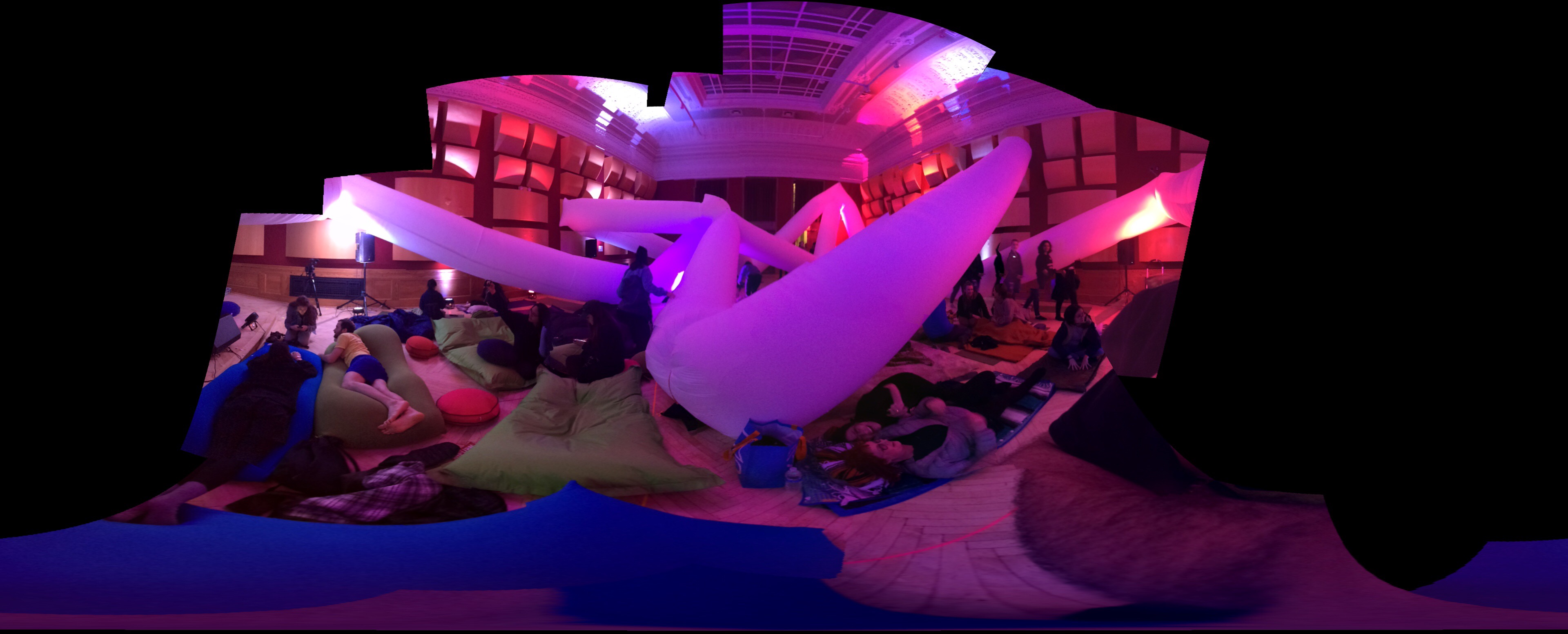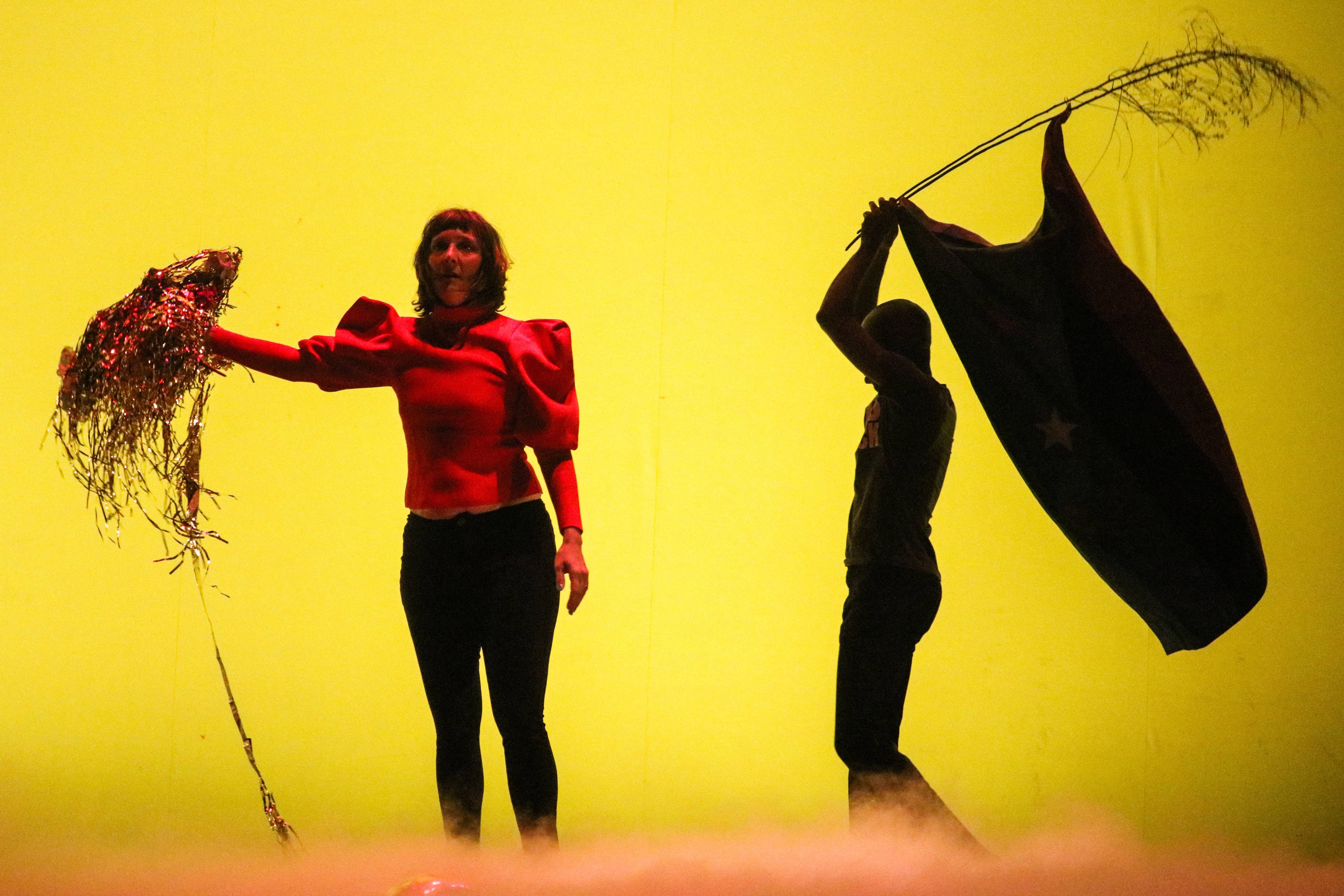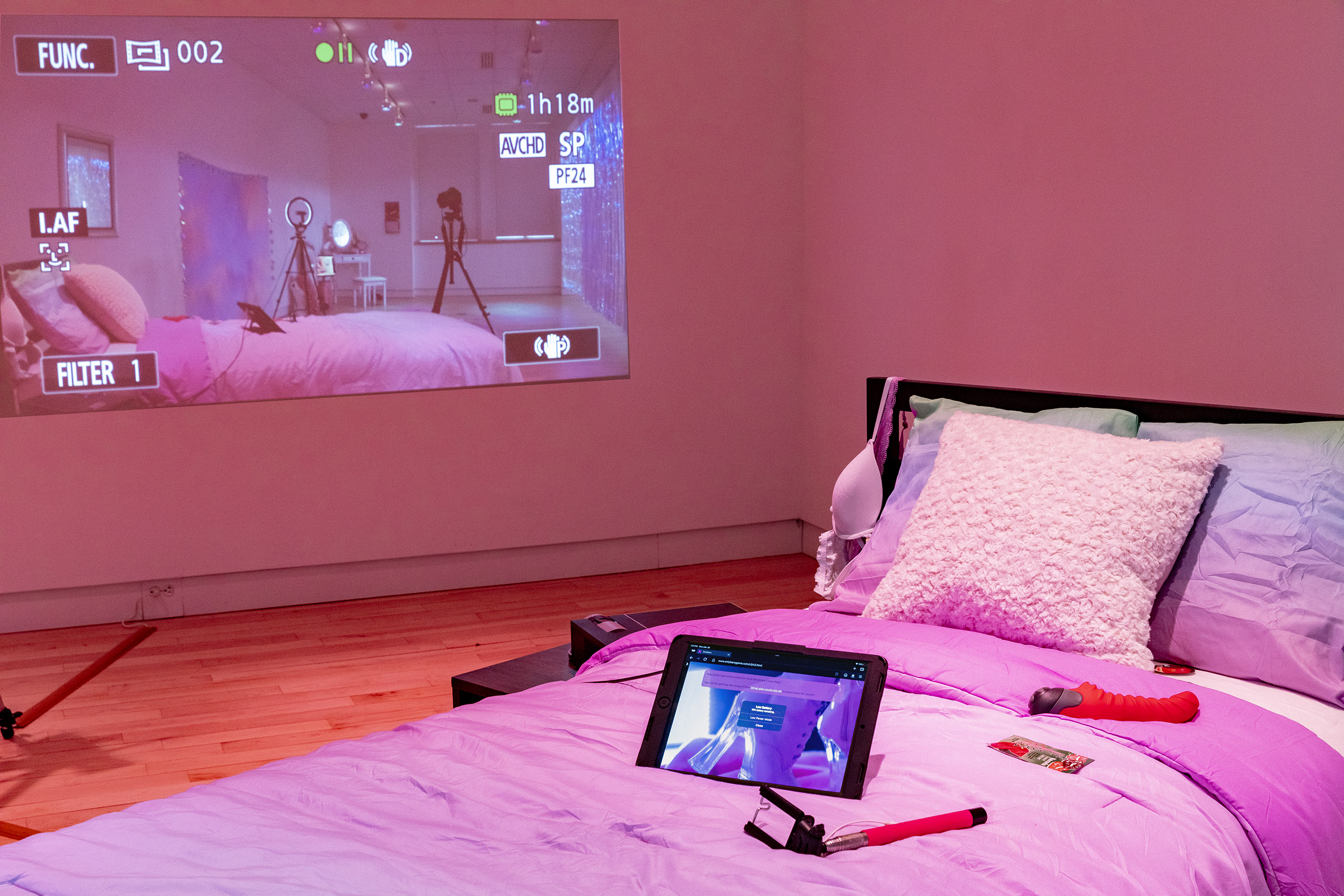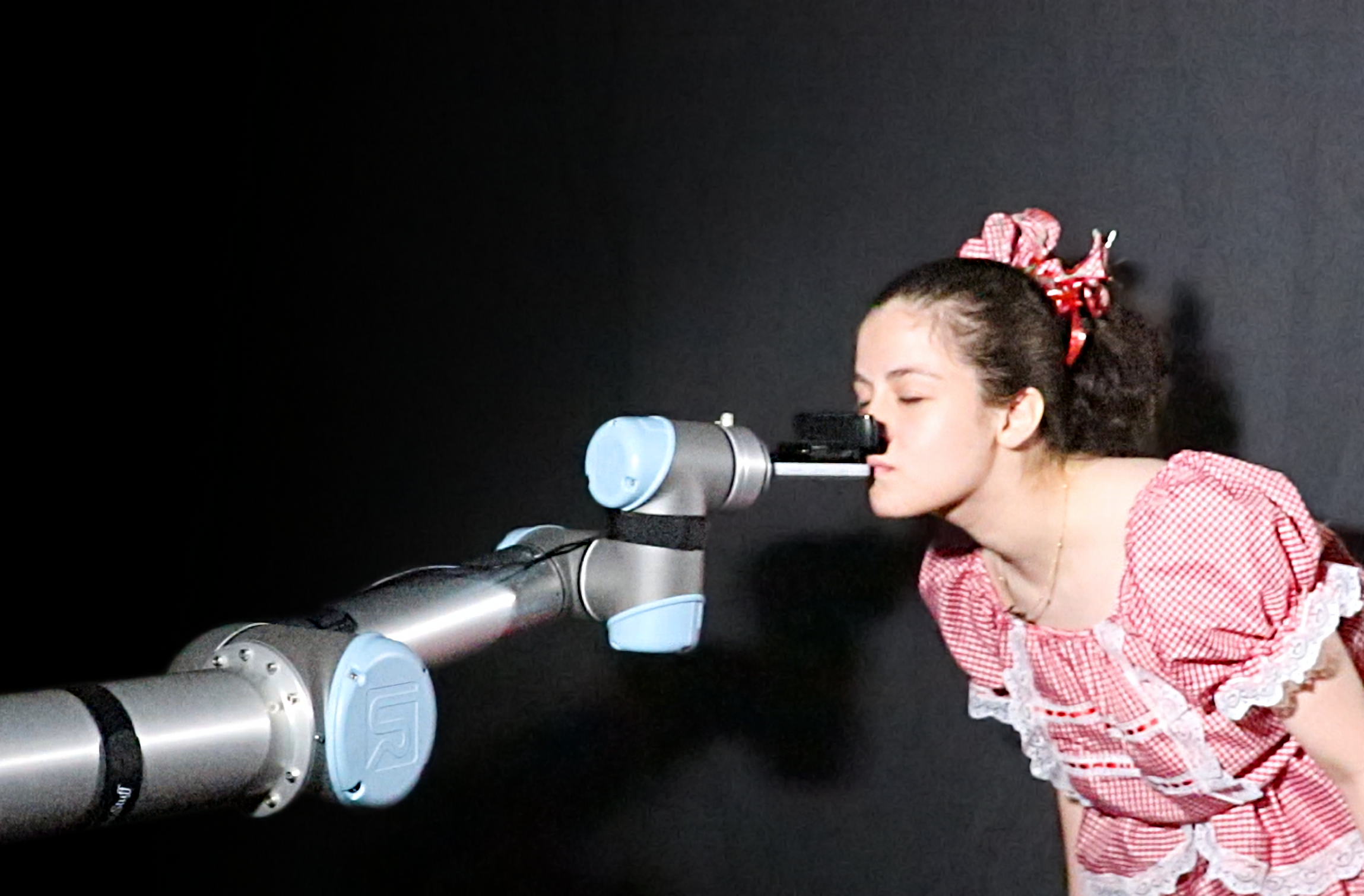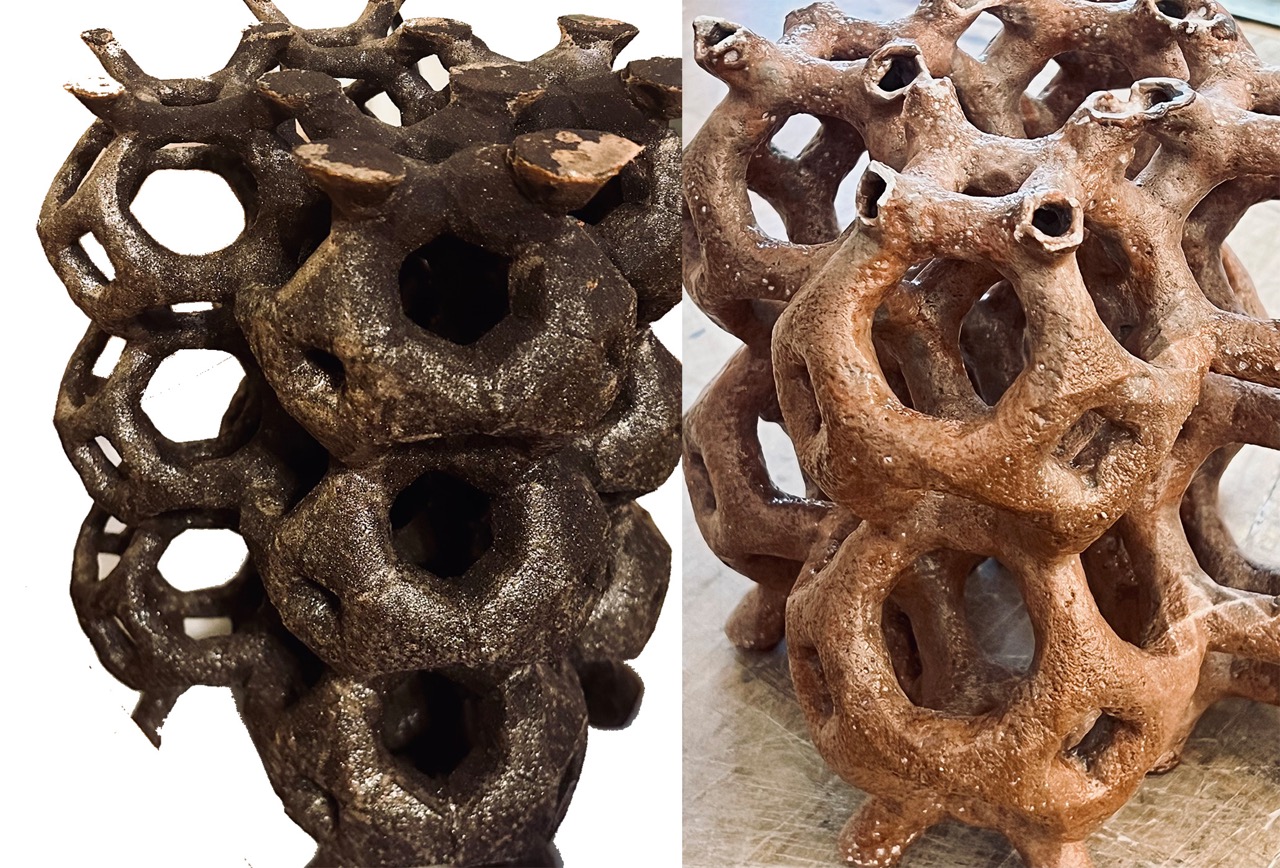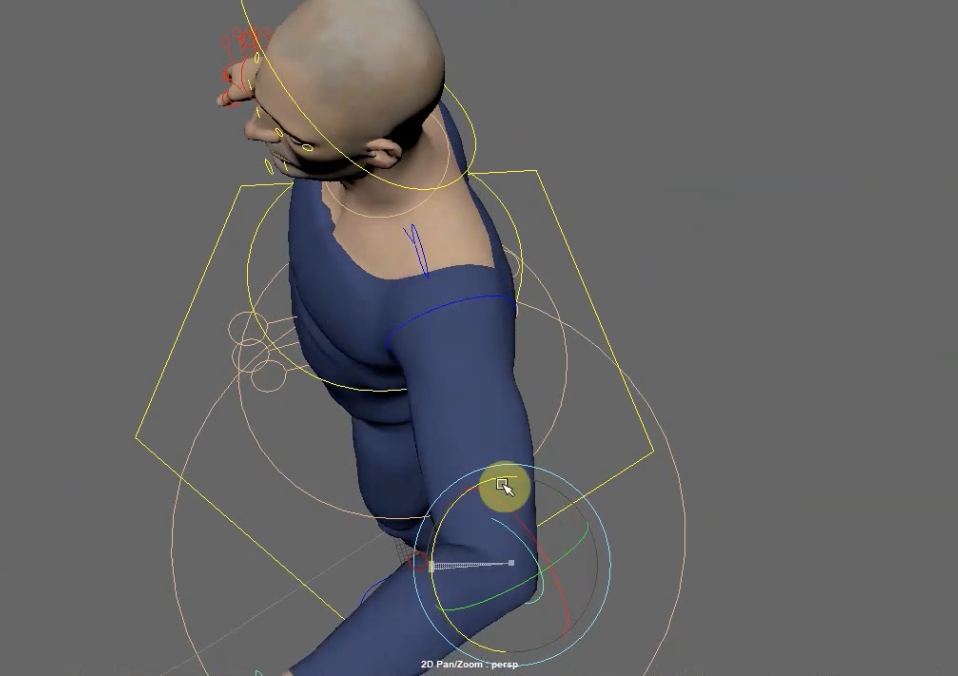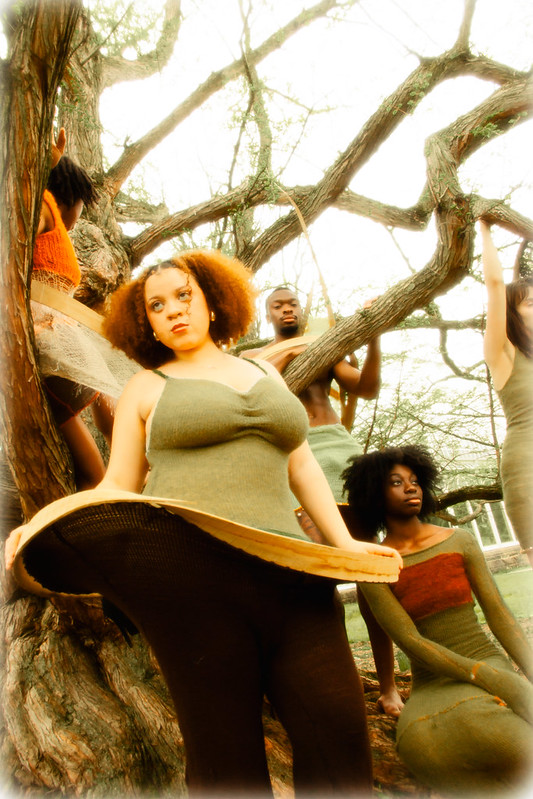Fall 2020 Steiner Invitational Speaker Series
The Sylvia and David Steiner Speaker Series brings creative practitioners who push boundaries, defy definition, and demonstrate excellence in all aspects of the arts, to our campus for deep engagement with our students and faculty. The Steiner Speaker Series is administered by the Frank-Ratchye STUDIO for Creative Inquiry with the assistance of an advisory committee comprised of faculty from around the university. During fall 2020, the STUDIO offered the opportunity for CMU faculty, staff and students to bring a guest lecturer of their choice to (virtually) visit Carnegie Mellon. Nominations were sought that aligned with the goal of the Steiner Speaker Series: to bring creative individuals to CMU to share diverse perspectives and expertise that cut across the arts, science, technology, and culture, and who are working to address our current moment in timely ways. The twenty-nine Fall 2020 visitors were:
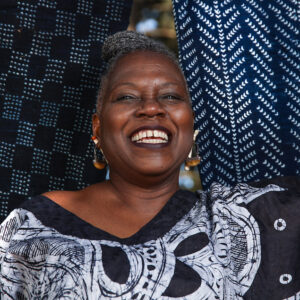 |
Kibibi Ajanku serves as a resident artist, researcher, and community connector in the Baltimore Natural Dye Initiative, part of the Natural Dye as Cultural Connector project in collaboration with the Maryland Institute College of Art. Ajanku works as an Urban Arts Professor for a small cohort of students at Coppin State University, and additionally serves as a Community Researcher for MICA. Through her work as an arts leader, an artist, and an educator, Ajanku works consistently and deeply as a social justice voice. She curates and guides the elements of the Urban Arts Leadership Fellowship for the Greater Baltimore Cultural Alliance, where she serves as Equity and Inclusion Director; under her leadership, the Fellowship has increased racial inclusion within arts sector leadership and has positively altered workplace best practices through actively training, placing, and referring an annual cohort of emerging professionals. She also leads monthly equity conversations for the Alliance and is excited to administer the evolution of a new Urban Arts Field School project with Urban Arts Leadership fellows and community folklorists, recently funded by the National Endowment for the Arts. At CMU, Ajanku spoke with students about West African indigo dye traditions in Prof. Olivia Robinson’s courses on textiles and soft technology in CMU’s IDeATe program. |
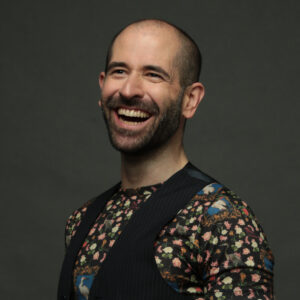 |
Carlos Armesto is the Producing Artistic Director of theatreC, a company dedicated to creating unique theatrical experiences. He has worked as a director and producer on festivals, plays, musicals, concerts, and events around the country. Mr. Armesto was an Associate Curator at the inaugural Pittsburgh International Festival of Firsts, an Associate Artistic Director at The Ensemble Studio Theatre (EST) and Co-Director for the EST/Sloan Project. He is also a recipient of the Bill Foeller Fellowship at Williamstown Theatre Festival, and a Princess Grace Fellowship. Through theatreC, which celebrated its 10th anniversary in November 2019, he has created over 50 theatrical works. Notable credits include THE WHO’S TOMMY (Best Director, Star Ledger’s NJ Tonys 2010), BINDING (Best Choreography, Solo Performance and Performance Art Piece – Innovative Theatre Awards 2010), Echoes of Etta at Joe’s Pub (MAC Award for Outstanding Cabaret Act 2014), and HEADING EAST (with BD Wong). He has directed and consulted for several university programs, including Rutgers Theater Company, NYU’s Graduate Musical TheatreWriting Program and the Dramatic Writing Program, and Fordham University. Currently under development: ODD MAN OUT, (with Teatro Ciego of Argentina), CUBAMOR, and URINETOWN (with NYU Tisch). He is also Creative Director for theatreC’s renowned LGBTQ+ Party Series RETRO FACTORY. At CMU, Armesto presented a lecture and two-weekend workshop for the School of Drama. |
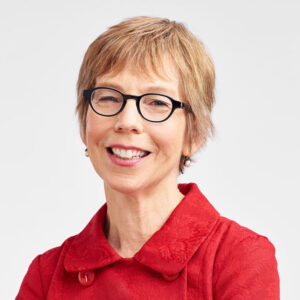 |
Angela Myles Beeching is a noted arts career specialist. She is the author of Beyond Talent: Creating a Successful Career in Music, first published by Oxford University Press in 2005, which is widely used by professional and student musicians and frequently serves as a central career development text in music programs. Beeching was the Director of Manhattan School of Music’s Center for Music Entrepreneurship; during the 2010-11 academic year she was a visiting consultant/adjunct faculty at IU Jacobs School of Music leading Project Jumpstart, a student-centered and student-driven career and entrepreneurial leadership program. Beeching is the former director of the Career Services Center at New England Conservatory. A Fulbright Scholar and recipient of the Harriet Hale Woolley grant, she holds a doctorate in cello performance from Stony Brook University. Dr. Beeching studied cello in Paris with Roland Pidoux and in the US with Timothy Eddy. She held faculty teaching positions at Cal State Fresno and SUNY Potsdam before returning to Boston. She has also written for Classical Singer, Inside Arts, and Chamber Music magazines. In addition to workshops at many conservatories and schools of music, Beeching has presented at national conferences for arts administrators, music educators, and performers. A leader in the field of music career development, she is the co-founder of NETMCDO, the Network of Music Career Development Officers, the international organization dedicated to enhancing music career development. At CMU, Beeching spoke with students in Prof. Monique Mead’s Freelance Musician course in the School of Music. |
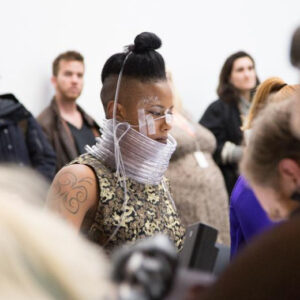 |
Lee Blalock is a Chicago based artist and educator presenting alternative and hyphenated states of being through technology-mediated processes. Interested in how technologies support the idea of impossible anatomies, behaviors and performances, the work is an exercise in body modification by way of amplified behavior or “change-of-state”. Blalock also works under the moniker of L[3]^2, whose most recent live work embraces noise and fissure as a natural state of being for bodies living in hybrid states. Blalock, an Assistant Professor in the Art and Technology Studies Department at the School of the Art Institute of Chicago, spoke to the students in Prof. Lindsey French’s section of Electronic Media Studio: Introduction to Interactivity. |
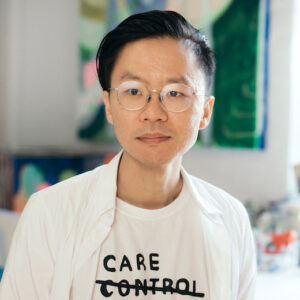 |
Taeyoon Choi is an artist, educator, and organizer based in Seoul and New York. A co-founder of the School for Poetic Computation, he works with computer programming, drawing, and writing, oftentimes in collaboration with fellow artists, experts and community members. Choi explores the poetics in science, technology, society, and human relations, and is currently working on a project, Distributed Web of Care, to promote critical perspectives on technology, ethics, justice and sensitivity to the concept of personhood. He believes in the intersectionalities of art, activism, education and works on disability rights, environmental justice and anti-racism. Through his diverse practices, he seeks a sense of gentleness, magnanimity, justice, and solidarity, and intellectual kinship. At CMU, Choi spoke with students in the IDeATe program in an event hosted by Professors Heidi Wiren Bartlett and Robert Zacharias. |
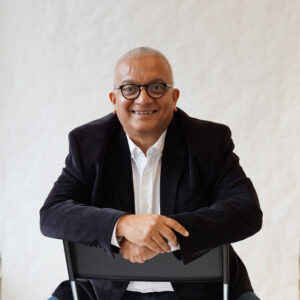 |
Uday Dandavate is an expert in helping organizations innovate through ethnographic research. A world traveler, a champion of co-creation, and a design activist, Uday’s curiosity for people, cultures, and change has drawn him to fields as diverse as anthropology, psychology, communication, sociology, marketing, politics, and design. At SonicRim he helps clients cultivate a capacity for co-imagining the future and co-creating solutions that help improve the lives of everyday people. Uday holds a Masters of Design Research from The Ohio State University, and a professional diploma in industrial design from the National Institute of Design Ahmedabad. At CMU, Uday spoke with students in Professor Wayne Chung’s Tools for UX Design course in the School of Design. |
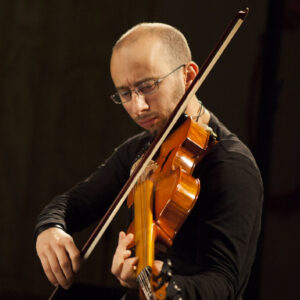 |
Marco Fusi is an internationally known multi-instrumentalist, and a passionate advocate for the music of our time. Among many collaborations with emerging and established composers, he has premiered works by Billone, Sciarrino, Eötvös, Cendo and Ferneyhough. As violinist and violist, Marco has performed with Pierre Boulez, Lorin Maazel, Alan Gilbert, Beat Furrer, David Robertson, and frequently plays with leading contemporary ensembles including Klangforum Wien, MusikFabrik, Meitar Ensemble, Mivos Quartet, Ensemble Linea, Interface (Frankfurt), Phoenix (Basel) and Handwerk (Köln). Marco also plays viola d’amore, commissioning new pieces and collaborating with composers to promote and expand existing repertoire for the instrument. A strong advocate and educator of contemporary music, he has given lectures and workshops at Columbia University, U.C. Berkeley, Basel Musikhochschule, New York University, Boston University, Royal Danish Academy of Music, and the University of Chicago. Marco teaches Contemporary Chamber Music at the Milano Conservatory and is Researcher in Performance at the Royal Conservatoire of Antwerp. At CMU, Fusi spoke with students about early tuning systems and other topics in Professor Annie Hui-Hsin Hsieh’s Harmony 1 course in the School of Music. |
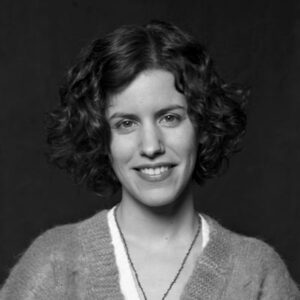 |
Hilary Greenbaum is the design director for the Whitney Museum of American Art. She is a professor at NYU’s School of Continuing & Professional Studies, and has been a guest critic at Pratt Institute. Her work has been recognized by the American Institute of Graphic Arts, the Society of Publication Designers, the Type Directors Club, the Art Directors Club, the Society for News Design and the Output Foundation. Her work has been featured in such publications as TypoMag: Typography in Magazines, Layout Essentials: 100 Design Principles for Using Grids and Typography Essentials: 100 Design Principles for Working with Type. While at The New York Times Magazine, the Art Directors Club also honored her department there as the Design Team of the Year for their 89th, 90th and 91st Annual Awards. Greenbaum studied graphic design at the California Institute of the Arts (MFA 2006) and Carnegie Mellon University (BFA 2001), and has previously worked as a staff designer and design columnist for The New York Times Magazine. Greenbaum spoke to students in Prof. Brett Yasko’s Publication course in the CMU School of Design. |
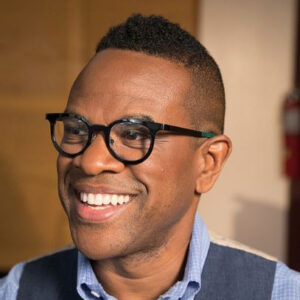 |
Thomas Allen Harris is a filmmaker, animator and artist whose work across film, video, photography, and performance illuminates the human condition and the search for identity, family, and spirituality. A graduate of Harvard College and the Whitney Independent Study Program, member of the Academy of Motion Pictures Arts and Sciences, and published writer/curator, Harris lectures widely on the use of media as a tool for social change. He lectures and teaches at Yale University on media arts, visual literacy, and personal archiving as a Senior Lecturer in the Department of African American Studies & Film and Media Studies. Harris’s deeply personal films have received critical acclaim at international film festivals such as Sundance, Berlin, Toronto, FESPACO, Outfest, Flaherty, and Cape Town. His most recent feature film, Through a Lens Darkly: Black Photographers and the Emergence of a People (2014), which looks at the ways photographic representations serve as tools of representation and self-representation through history, was nominated for both an Emmy and Peabody, and won over 7 international awards including the 2015 NAACP Image Award for Outstanding Documentary Film. His work has been supported by the Ford Foundation, National Endowment for the Arts, Andy Warhol Foundation for the Visual Arts, Sundance Institute, Tribeca Film Institute, The Fledgling Fund, Rockefeller Foundation, Corporation for Public Broadcasting, Nathan Cummings Foundation, New York State Council on the Arts, Creative Time Inc., and the Banff Centre. At CMU, Harris spoke to students in Professor Johannes DeYoung’s Real-Time Animation course in the School of Art. |
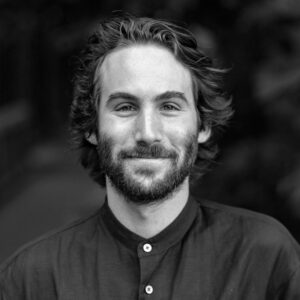 |
Mark D. Heller is an Irving Innovation Fellow at the Harvard Graduate School of Design for 2019-2020, and an Adjunct Professor in Architecture at Wentworth Institute of Technology. Mark received his MLA and MUP from the Harvard Graduate School of Design. As an Irving Innovation Fellow, Mark is devising an alternative mode of interrogating landscape through densities and voids of electromagnetic bandwidth. Working predominantly through geographic-scale visualization, Mark explores how classical interpretations of the landscape sublime might be resurrected today not through the physicality of nature, but rather in the deepest trenches of the electromagnetic terrain. At CMU, Heller spoke to students in Professor Sinan Goral’s Responsive Spaces and Media Architecture course in the School of Architecture. |
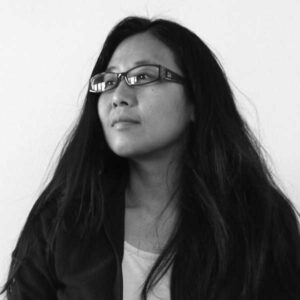 |
Joyce Hwang is Associate Professor, Associate Chair, and Director of Undergraduate and Graduate Studies in the Department of Architecture at the University of Buffalo. Hwang has been recognized as one of the leading practitioners in considering the role of animals in architectural design and discourse; through her teaching, research and critical practice as director of Ants of the Prairie, she confronts contemporary ecological conditions through creative means. Currently Hwang is developing a series of projects that incorporate wildlife habitats into constructed environments. Recent projects include “Bat Tower,” “Bat Cloud,” “Habitat Wall,” and “Bower.” She is a recipient of the Architectural League Emerging Voices Award (2014), the New York Foundation for the Arts (NYFA) Fellowship (2013), the New York State Council on the Arts (NYSCA) Independent Project Grant (2013, 2008), and the MacDowell Colony Fellowship (2016, 2011). In the CMU School of Architecture, Hwang spoke to students in the First-Year Studio of Professor Sarah Rafson, who are designing habitats for different species of animals. |
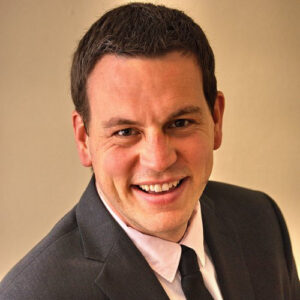 |
Shawn Jeffers is the Cincinnati chapter leader of GLSEN, an American education organization working to end discrimination, harassment, and bullying based on sexual orientation, gender identity and gender expression and to prompt LGBT cultural inclusion and awareness in K-12 schools. At CMU, Jeffers spoke to the Music Education student cohort, directed by Professor Susan Raponi in the School of Music, about best practices for creating inclusive school cultures and considerations in working with students who identify as LGBT+ and as gender and sexual minorities. |
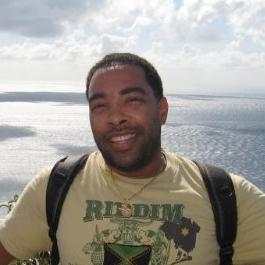 |
Anthony Jones is a professional working the field of theatrical sound. He works as Head of Audio for the Hamilton Angelica tour. At CMU, he spoke with students in Professor Christopher Evans’ Audio System Design course in the School of Drama. |
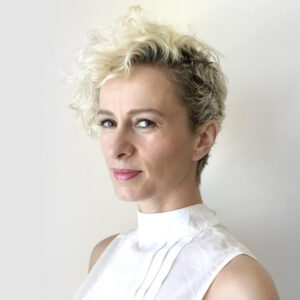 |
Ersela Kripa is a registered architect and professor in the College of Architecture at Texas Tech University. Her interests center on hackable infrastructures: research and visualizations that focus on using data to transfer agency to marginalized urban communities by operating where hacker culture meets the city, cataloging, analyzing, and co-opting ways in which citizens intersect with urban systems. Kripa uses design as an empowering tool for agency in public space. Her work is located on the U.S. Mexico border where she maps trans-border shared ecologies, urbanism, infrastructures and exposes binational systems of control that affect human rights. At CMU, Kripa spoke on Front: Military Urbanisms and the Developing World to students as part of a mini-lecture series in Professor Dana Cupkova’s Introduction to Ecological Design and Thinking class in the School of Architecture. |
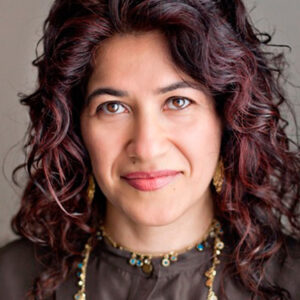 |
Laleh Mehran is an Iranian-born new media artist, Professor and the Director of Emergent Digital Practices at the University of Denver. Mehran creates elaborate environments in digital and physical spaces focused on complex intersections between politics, religion, and science. In a political climate in which certain views are increasingly suspect and can have extreme consequences, Mehran’s artworks are invitations to think again about each of these paradigms and the profound connections that bind them. Her research, often modeled on and about the very ideas of science and technology, takes advantage of their cultural importance in order to articulate a set of ideas which require precisely these kinds of mediations from both political and religious intolerance. Out of necessity, her artwork is as veiled as it is explicit, as personal as it is political and as critical as it is tolerant. Her work has been shown individually and collaboratively in the USA and international venues including ISEA, National Taiwan Museum of Fine Arts, ACT Festival, Massachusetts Museum of Contemporary Art, Carnegie Museum of Art, The Andy Warhol Museum, Denver Art Museum, European Media Arts Festival, Boulder Museum of Contemporary Art, Santa Fe International New Media Festival, and the Pittsburgh Biennial. At CMU, Mehran visited students in the Electronic Logics && Creative Practice course taught by Professors Heidi Wiren Bartlett and Robert Zacharias. |
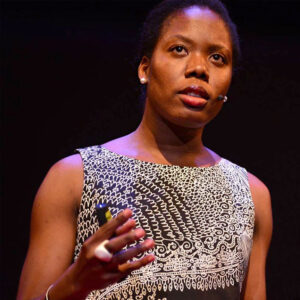 |
Vernelle A. A. Noel is a Visiting Assistant Professor in the School of Architecture at the Georgia Institute of Technology. As a research scientist, computational designer, and architect who has worked in the U.S., the Caribbean, India, and Singapore, she investigates craft, computational making, and technology in vernacular design practices. Noel has presented at top academic conferences in the USA and Europe, and has been a primary reviewer for SIGGRAPH, IEEE VIS, and the NSF. Vernelle earned her Ph.D. in 2019 from Pennsylvania State University in Design Computing, with a dissertation entitled A Framework for Repairing Craft: A Case Study on Wire-Bending in Trinidad & Tobago. Prior to this, she earned an MS from MIT in 2013 in Design Computation, with research focused on computational approaches to design, digital fabrication, and CAD/CAM technologies such as 3D printing, and a B.Arch from Howard University. At CMU, she spoke with students attending the School of Architecture’s Computational Design Lecture Series program, under the direction of Professor Daniel Cardoso-Llach. |
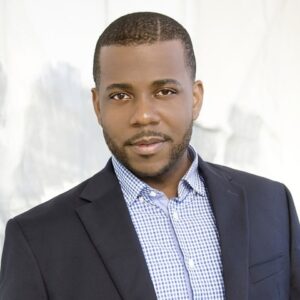 |
Sidney Outlaw has been lauded by The New York Times as a “terrific singer” with a “deep, rich timbre” and the San Francisco Chronicle as an “opera powerhouse” with a “weighty and forthright” sound. Outlaw was the Grand Prize winner of the Concurso Internacional de Canto Montserrat Caballe in 2010 and continues to delight audiences in the U.S. and abroad with his rich and versatile baritone and engaging stage presence. A graduate of the Merola Opera Program and the Gerdine Young Artist Program at Opera Theatre of Saint Louis, this rising American baritone from Brevard, North Carolina recently added a GRAMMY nomination to his list of accomplishments for the Naxos Records recording of Darius Milhaud’s 1922 opera trilogy, L’Orestie d’Eschyle. In the 2018-2019 season, Mr. Outlaw sang Dizzy Gillespie in Charlie Parker’s Yardbird with both Atlanta Opera and Arizona Opera, returned to the Baltimore Symphony as a soloist in Handel’s Messiah, sang Fauré’s Requiem at Augustana College, Brahms’ Ein Deutsches Requiem at Cornell University, and debuted with Mill City Opera as Guglielmo in Così fan Tutte. The 2019-2020 season includes his San Francisco Opera debut as the First Mate in Billy Budd, Messiah with the National Symphony Orchestra, Tommy McIntyre in Fellow Travelers with Madison Opera, Dizzy Gillespie in Yardbird with New Orleans Opera, Beethoven’s Missa Solemnis with the Colorado Symphony, and Mahler’s Songs of a Wayfarer with the Toledo Symphony. At CMU, Outlaw presented a lecture on “Exploring the Musical Legacy of Black Composers in Opera and Art song” to the School of Music’s piano and voice student cohorts, under the direction of Prof. Jocelyn Dueck. |
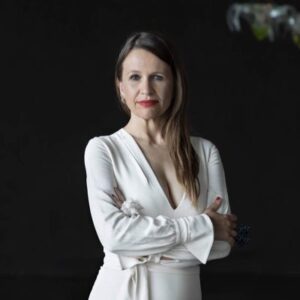 |
Claudia Pasquero is co-founder and director of ecoLogicStudio ltd, Professor of Synthetic Landscapes at University of Innsbruck, Director of the Urban Morphogenesis Lab at The Bartlett UCL, Senior Tutor at the IAAC in Barcelona. Claudia has been Unit Master at the Architectural Association in London, Senior Tutor at the IAAC in Barcelona, Visiting Critic at Cornell University, Visiting Critic at the Angewandte in Vienna, and Urban Morphogenesis Lab Director at the Bartlett School of Architecture in London. She has also been the curator of the Tallinn Biennale 2017. Her projects have been published and exhibited throughout the world, in particular in Astana (EXPO 2017), Karlsruhe (Globale Exibition – ZKM Museum, 2015), Milan (EXPO2015, 2015), in Orleans (Biennale of Architecture #1, 2017 and 9th Archilab – FRAC Collection, 2014), in Paris (EDF Foundation, 2013), in London (Architectural Association, 2011 and London Biennale, 2006 and 2008), in the Venice Art as well as Architectural Biennales, in Seville Biennale BIACS, Istanbul Garanti Gallery, and Milan Fuorisalone. She is co-author of Systemic Architecture – Operating manual for the self-organizing city published by Routledge in 2012. At CMU, Pasquero spoke on Photosynthetics and Dark Ecologies to students as part of a mini-lecture series in Professor Dana Cupkova’s Introduction to Ecological Design and Thinking class in the School of Architecture. |
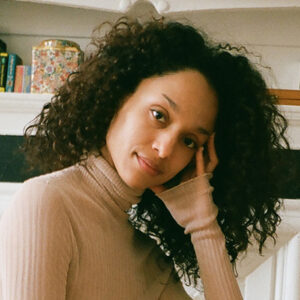 |
Legacy Russell is a curator, writer, and artist. Born and raised in New York City, she is the Associate Curator of Exhibitions at The Studio Museum in Harlem. Russell holds a dual-major B.A. with Honors from Macalester College in Art History & Studio Art and English & Creative Writing with a focus in Gender Studies, and an MRes with Distinction in Art History from Goldsmiths, University of London with a focus in Visual Culture. Her academic, curatorial, and creative work focuses on gender, performance, digital selfdom, internet idolatry, and new media ritual. Her curated exhibitions and projects include Projects 110 : Michael Armitage, organized with Thelma Golden and The Studio Museum in Harlem at MoMA (2019); Dozie Kanu : Function (2019), Chloë Bass : Wayfinding (2019), and Radical Reading Room (2019) at The Studio Museum in Harlem; MOOD : Studio Museum Artists in Residence 2018-19 at MoMA PS1; GLITCH @ NIGHT; a series of multimedia events exploring digital feminism and celebrating queer nightlife at ICA London (2017); and the critically acclaimed Wandering/WILDING: Blackness on the Internet in collaboration with IMT Gallery and ICA London (2016). Amongst other institutional projects, Russell is currently working on organizing with Thelma Golden and The Studio Museum in Harlem Projects: Garrett Bradley, a presentation of the artist and filmmaker’s multichannel video installation, “America” (2019) forthcoming at MoMA in 2020. She is also working on the This Longing Vessel : Studio Museum Artists in Residence 2019-20 which will be presented at MoMA PS1 Winter 2020. Russell’s written work, interviews, and essays have been published internationally. She is the recipient of the Thoma Foundation 2019 Arts Writing Award in Digital Art and a 2020 Rauschenberg Residency Fellow. Her first book Glitch Feminism: A Manifesto (2020) is published by Verso Books. At CMU, Russell spoke to the CMU School of Art in an event organized by Prof. Isla Hansen. |
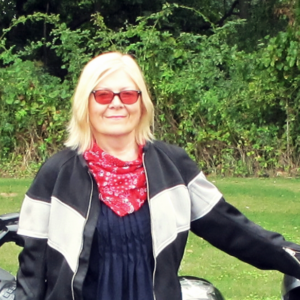 |
Helena Sarin is one of the world’s foremost artists working with artificial intelligence to generate images. A former software engineer, she works with Generative Adversarial Networks (GANs) whose unpredictability inspires, unblocks, speaks to our perception in unexpected ways. After leaving the Soviet Union, Sarin spent more than twenty years at Bell Labs, designing commercial communication systems and developing computer vision software. While she has always worked with technology, she moonlighted in the applied arts and photography. But art and software ran as parallel tracks in her life. Over the past five yeas, Sarin has developed a second, international career in new media arts; her work has appeared in virtually every significant exhibition exploring the intersection of the arts and artificial intelligence. At CMU, Sarin spoke to students in Professor Golan Levin’s course, Interactivity and Computation for Creative Practice, in the School of Art. |
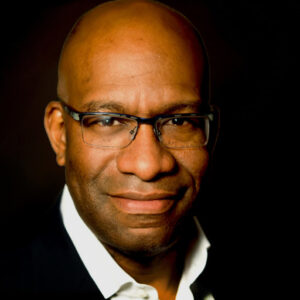 |
Larry Sass is an architectural designer and researcher exploring digital design and fabrication across scales. As an associate professor in the Department of Architecture at MIT, Larry has taught courses specifically in digital fabrication and design computing since 2002. He earned his PhD ‘00 and SMArchS ’94 at MIT, and has a BArch from Pratt Institute in NYC. Larry has published widely, and has exhibited his work at the Museum of Modern Art in New York City. Larry’s research focused on digital delivery of housing for low income families. Main ideas are centered on discovery and development of new design tools that automated the production of design models and and aid in fabrication of finished construction. He believes that hand crafted, hand operated construction will soon be a thing of the past, and that in the future, buildings will be printed with machines run by computers. Today in the age of manufacturing with information and and new forms of machine intelligence more than ever designers will need new tools to produce their ideas. His latest obsession is development of fabrication based software that helps designers and builders physical produce ideas from 3D computer models. At CMU, Sass spoke on Technologies of Affordable Housing to students as part of a mini-lecture series in Professor Dana Cupkova’s Introduction to Ecological Design and Thinking class in the School of Architecture. |
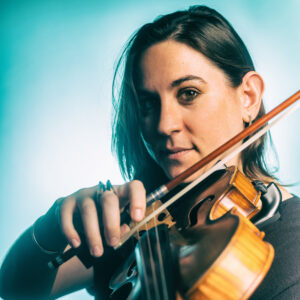 |
Nadia Sirota’s varied career spans solo performances, chamber music, curation, and broadcasting. In all branches of her artistic life she aims to open classical music up to a broader audience. Nadia’s singular sound and expressive execution have served as muse to dozens of composers, including Nico Muhly, Bryce Dessner, Missy Mazzoli, Daníel Bjarnason, Judd Greenstein, Marcos Balter, and David Lang. As a soloist, Nadia has appeared with acclaimed orchestras around the world, including the Detroit Symphony, Singapore Symphony, Colorado Symphony, the National Arts Centre and Spanish National Orchestras, and the Orchestre National d’Île-de-France. To date, she has released four solo albums of commissioned music. She has also lent her sound to recording and concert projects by such artists as The National, David Bowie and Björk, and, as a member of the acclaimed chamber sextet yMusic, has collaborated with Paul Simon and Ben Folds, among others. As a broadcaster, Ms. Sirota is the creator and host of Living Music with Nadia Sirota, a podcast and concert series that demystifies classical music. She also serves as creative associate at The Juilliard School and as artist-in-residence at UCLA’s Center for the Art of Performance. Since 2018, Nadia has served as the New York Philharmonic’s Creative Partner, a position created for her. In this role, she helped create and direct two performance series. Nadia won a 2015 Peabody Award, broadcasting’s highest honor, for her podcast Meet the Composer, which deftly profiled some of the most interesting musical thinkers living today. At CMU, Sirota spoke with students in Professor Lance LaDuke’s Remote Performance course in the School of Music. |
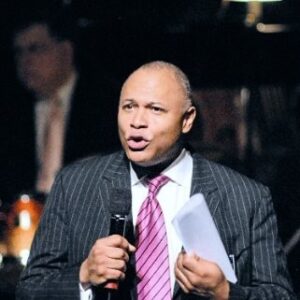 |
Byron Stripling is a jazz trumpeter who has been a member of the Count Basie Orchestra. His electrifying and heartfelt tribute to Louis Armstrong has become America’s most popular orchestral pops program. Since his Carnegie Hall debut with Skitch Henderson and the New York Pops, Stripling has become a pops orchestra favorite, soloing with Boston Pops, National Symphony, Pittsburgh Symphony, Cincinnati Pops, Seattle Symphony, Baltimore Symphony, Dallas Symphony, Minnesota Orchestra, Detroit Symphony, Vancouver Symphony, Toronto Symphony, and Dallas Symphony, to name a few. He has been a featured soloist at the Hollywood Bowl and on the PBS television special, “Evening at Pops,” with conductors John Williams and Keith Lockhart. Currently, Stripling serves as artistic director and conductor of the highly acclaimed Columbus Jazz Orchestra. Stripling earned his stripes as lead trumpeter and soloist with the Count Basie Orchestra under the direction of Thad Jones and Frank Foster. He has played and recorded extensively with the bands of Dizzy Gillespie, Woody Herman, Dave Brubeck, Lionel Hampton, Clark Terry, Louis Bellson, and Buck Clayton in addition to The Lincoln Center Jazz Orchestra, The Carnegie Hall Jazz Band, and The GRP All Star Big Band. At CMU, Stripling spoke to students in Professor Ken Keeling’s Convocation, a long-standing, weekly required activity for our undergraduate students in the School of Music. |
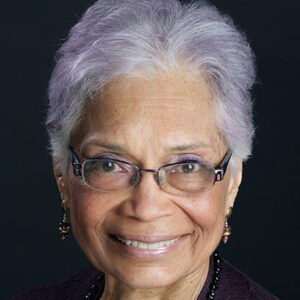 |
Dr. Sharon Egretta Sutton, FAIA is an activist educator and public scholar who promotes inclusivity in the cultural makeup of the city-making professions and in the populations they serve, and also advocates for participatory planning and design processes in disenfranchised communities. Over a 43-year period, Sutton has served on the faculties of Parsons School of Design, Pratt Institute, Columbia University, the University of Cincinnati, the University of Michigan, and the University of Washington. Sutton was the twelfth African American woman to be licensed to practice architecture, the first to be promoted to full professor of architecture, the second to be elected a Fellow in the American Institute of Architects (AIA), and the first to be president of the National Architectural Accrediting Board. She holds five academic degrees—in music, architecture, philosophy, and psychology—and has studied graphic art internationally. Sutton’s scholarship explores America’s continuing struggle for racial justice and its effect on the built environment. Her latest book, When Ivory Towers Were Black: A Story about Race in Americas Cities and Universities, portrays what was undoubtedly the nation’s most audacious effort to recruit African American and Latino students to Columbia University’s School of Architecture. Sutton received the Medal of Honor from both AIA New York and AIA Seattle, and the Whitney M. Young Jr. Award from AIA National. She is a distinguished professor of the Association of Collegiate Schools of Architecture and an inductee into the Michigan Women’s Hall of Fame. In an event organized by Ever Clinton, a graduate student in the CMU School of Architecture, Dr. Sutton will speak with students in the National Organization of Minority Architect Students. |
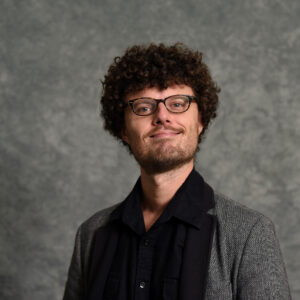 |
Gil Teixeira is a transdisciplinary and socially engaged creative artist who strives to establish positive, meaningful and enduring connections between people. In his work, Teixeira uses sound, music, video, text, sensory data, analog and digital technology, not so much to create objects but to amplify the resonances and connections that emerge from interpersonal space. Teixeira also teaches music at the McAnulty College and Graduate School of Liberal Arts at Duquesne University in Pittsburgh. At CMU, Teixeira spoke with students in electronic music courses taught by Professors Jesse Stiles and Annie Hui-Hsin Hsieh in the School of Music. |
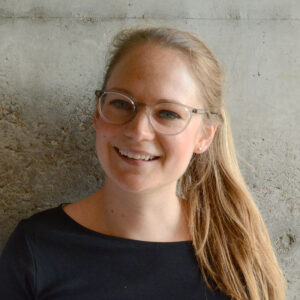 |
Lauren Vasey has been a Research Associate and a Doctoral Candidate at the Institute for Computational Design and Construction at the University of Stuttgart since 2014. Previously, she received a Bachelor of Science in Engineering from Tufts University, cum laude, and a Masters of Architecture from the University of Michigan, with distinction. She has previously conducted research on customizable robotic fabrication processes at both the University of Michigan Taubman College FABLab as well as the Swiss Federal Institute of Technology (ETH-Zurich), Chair for Architecture and Digital Fabrication. Since 2016, Lauren is an elected member of the Board of Directors of Acadia where she serves as the chair of the scientific committee, and is also on the editorial board of the International Journal of Architectural Computing. Vasey’s research at ICD focuses on behavioral and adaptive robotic fabrication: considering in particular how sensor feedback, iterative computation, and flexible robotic behaviors enable a rethinking of linear production chains and foster increased integration and collaboration in large scale fabrication. At CMU, Vasey spoke on Material Ecologies and Adaptive Robotic Fabrication to students as part of a mini-lecture series in Professor Dana Cupkova’s Introduction to Ecological Design and Thinking class in the School of Architecture. |
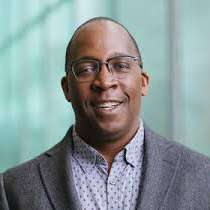 |
Howard Watkins is vocal coach and assistant conductor at the Metropolitan Opera in New York City. His appearances throughout the Americas, Europe, Asia, Russia, and Israel have included collaborations with Joyce DiDonato, Diana Damrau, Kathleen Battle, Grace Bumbry, Mariusz Kwiecień, Anna Netrebko, and Matthew Polenzani at such venues as the Metropolitan Museum of Art, Spivey Hall, the Kennedy Center, the Pierpont Morgan Library, the United States Supreme Court, Alice Tully Hall with the Chamber Music Society of Lincoln Center, the three stages of Carnegie Hall, and the Bolshoi Theater in Moscow. Watkins has served on the faculties of the Tanglewood Music Center, the Aspen Music Festival, the Mannes School of Music, the North Carolina School of the Arts, the International Vocal Arts Institute, IIVA in Italy, the Brancaleoni Music Festival in Italy, the Tokyo International Vocal Arts Academy, and VOICExperience in Orlando, Tampa, and Savannah. He has also worked on the music staffs of Palm Beach Opera, the Washington National Opera, and the Los Angeles Opera. A native of Dayton, Ohio, Watkins completed his Doctor of Musical Arts in accompanying and chamber Music at the University of Michigan. In 2004, he received the Paul C. Boylan Award from the University of Michigan for his outstanding contributions to the field of music, and a special achievement award from the National Alumni Association of the University of Dayton. At CMU, Watkins visited Voice Seminar, a required course for all voice majors, taught by Prof. Jennifer Aylmer in the CMU School of Music. |
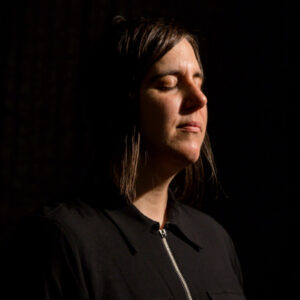 |
Sarah Weaver, Ph.D. is a New York-based contemporary composer, conductor, technologist, educator, and researcher working internationally as a specialist in Network Arts. Weaver has composed solo, chamber, and large ensemble works for groundbreaking musicians for twenty-five years, integrating influences of jazz, contemporary classical, improvisation, computer music, world music, and individual music languages of performers. She is an innovator of live performance via the internet by musicians and artists in different geographic locations, encompassing numerous artistic projects with collaborators and interdisciplinary projects with groups such as NASA Kepler/K2 Mission and United Nations. Weaver is the director of NowNet Arts, director of the Sarah Weaver Ensemble, and editor of the Journal of Network Music and Arts (JONMA). She on the faculty of New School College of Performing Arts, Performer-Composer Masters Program. Weaver is a member of ASCAP, College Music Society, National Association of Composers, and board member of the JackTrip Foundation. At CMU, Weaver spoke with students in electronic music courses taught by Professors Jesse Stiles and Annie Hui-Hsin Hsieh in the School of Music. |
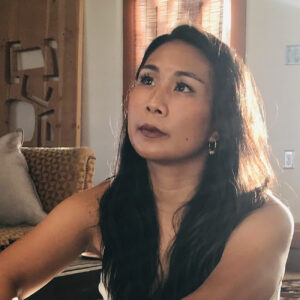 |
Michelle Wong is an expert in the unusual field of voice-over acting. She is known for her work in Abominable (2019), Scandal (2012) and ER (1994). At CMU, Wong visited the 4th-Year BFA Acting and Music Theatre students, under the direction of Prof. Catherine Moore in the CMU School of Drama. |
